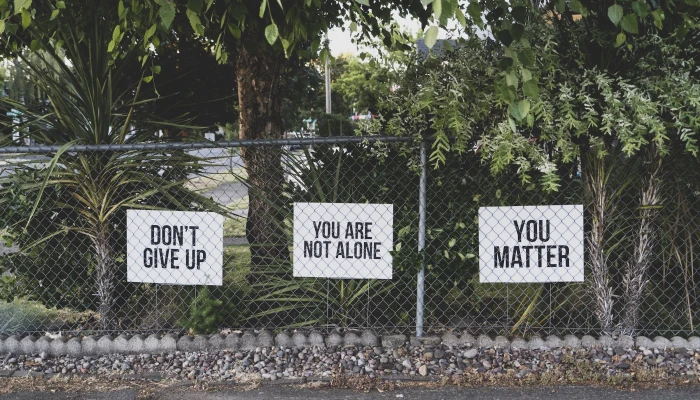Asking R U OK: tips to start a conversation
If you notice that something is not quite right with someone at work – they might seem down, withdrawn, more stressed than usual, distracted, or unmotivated – chances are they might need a bit of extra support from the people around them. With R U OK? day coming up on 14 September, here are some tips to help you act on these signs and start a conversation.
choose a suitable moment
If you’re concerned about a colleague at work, try to find some time to discuss these concerns in a quiet area. Make sure you feel comfortable and set aside enough time to have a private discussion without interruptions. If you feel it’s appropriate, you might even offer to take them out for a walk or a coffee to get them away from the office environment for a little while.
How to open up the conversation
Approach the person you are concerned about in a calm and caring way. Open-ended questions are always best, such as asking, ‘I’ve noticed you haven’t been yourself lately, how are you doing?’ or, ‘How have you been traveling?’ This gives the person an opportunity to speak generally and doesn’t limit the conversation to ‘yes’ or ‘no’ responses.
‘I’ve noticed you haven’t been yourself lately, how are you doing?
Avoid judging the person
You don’t need to provide advice or solve their problems. Remember that just by listening and showing some understanding you can make a difference to a person’s mental wellbeing. It’s important not to judge what they say or compare their experiences to something you or somebody you know has gone through. Just be open and genuine about your concern, and try to convey that their feelings are valid and important.
It may not go to plan
Although you may have good intentions, there’s a chance that your efforts will not be met with the response you are hoping for. If they appear not to appreciate your efforts, don’t take it personally. They may feel embarrassed or maybe they’re simply not ready to talk at this stage. Let them know that you’re around if they ever need somebody to talk to. You can even ask them for permission to check in with them again in a week’s time when they may be more responsive.
Try to encourage them to seek further support
You don’t need to do it all on your own. If you feel that your friend or colleague requires further support, suggest they contact their GP or reach out to helplines. In Australia, organisations like Lifeline (13 11 14) or SANE (1800 18 7263) can be valuable. For those in the UK, the Samaritans offer a helpline (116 123) available 24/7, providing emotional support for anyone in distress. Another option is the confidential Employee Assistance Program (EAP) that many organisations offer. Further, if you feel that someone more senior than you needs to know about the issue, ask for your colleague’s permission to notify a manager or supervisor they trust.
Maintain your support
If you’ve managed to have a conversation with your colleague, don’t forget about the issues you’ve spoken about. Keep in contact and check in once a week or fortnight, or sooner if need be. Remind them that you’re around to support them.
If you’ve noticed a change in one of your friends or colleagues at work, don’t be afraid to reach out to them. Knowing that somebody cares can have enormous benefits for a person’s mental wellbeing. Never underestimate your own ability to positively impact somebody else’s life.
Resources:
Helena Kuo is a leading facilitator of mental health programs that she has delivered to a wide variety of organisations as well as having over 20 years working in Human Resources at senior levels.
About EnMasse:
Enmasse is a global workplace behaviour change consultancy dedicated to building cultures in which people are safe, can thrive and achieve their full potential. For more information, contact : Helena.kuo@enmasse2.com


